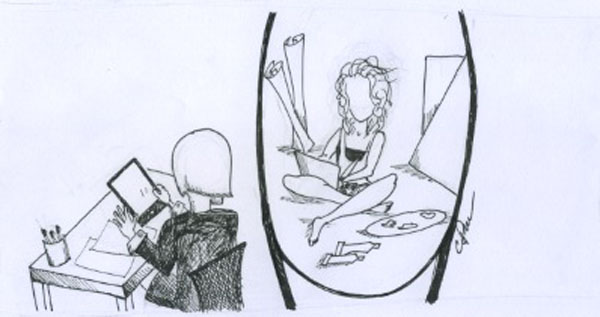As South students plan and organize their future academic goals, according to an Oracle-conducted survey, 47 percent of 202 South students said that they plan to pursue a certain field because of money.
The Oracle Editorial Board acknowledges that students should push for successful careers; however, success does not have to be defined solely by money or status. It can come in a variety of forms, depending on the student, their interests and what ultimately makes them content. When it comes to success, students should create their own definitions.
At first, 2013 South graduate Tim Kirby planned on studying engineering, doubting a future in music, but decided to pursue his passion in music education at Elmhurst College. Despite the consensus that art fields are considered risky when it comes to money, Kirby believes that viable options exist.
“I think the general perspectives towards music related fields is that music as a profession cannot bring in enough money to live comfortably,” Kirby said. “However, there are multiple fields of music to go into and there are many professions that are suitable for careers.”
Unlike Kirby, junior Tiffany Raine is not certain of her interests for the future.
“I chose to pursue studying in the medical field, because I consider myself intelligent enough to one day lead a steady career,” Raine said. “I don’t know if it will make me happy, but I always put financial security above my own happiness.”
Whether it’s related to science, technology, engineering and mathematics (STEM) or Humanities, the Editorial Board believes that students should pursue the career field they consider to be best for them.
According to the survey, of the 46 percent of South students pursuing STEM fields, 88 percent said that they agree that they are pursuing their field because of interest.
However, that does not mean that a student’s interests need to belong in only one field. A student who may be interested in both fields can integrate them into a single career, said Jeff Rylander, instructional supervisor of the Science Department.
“What is cool is when they can take those two passions and put them together,” Rylander said. “And maybe they’re going to be a sound engineer or something that’s…designing acoustics or something like that where they get to follow various passions. Because in any art-related field, there’s probably a STEM-related job in that field.”
Mixing different passions may help students find a career that balances passion and realistic endeavors, which the Oracle Editorial Board recognizes is also crucial. Kirby found his major passion in music, and his definition of success relies on following that passion.
“There is nothing that brings me joy like music does,” Kirby said. “That differs for every person though. For some people it may be biology or philosophy. For me it was music.”
Whether their major focuses on the arts or the sciences or neither, the Editorial Board urges for students to follow their definition of success.













